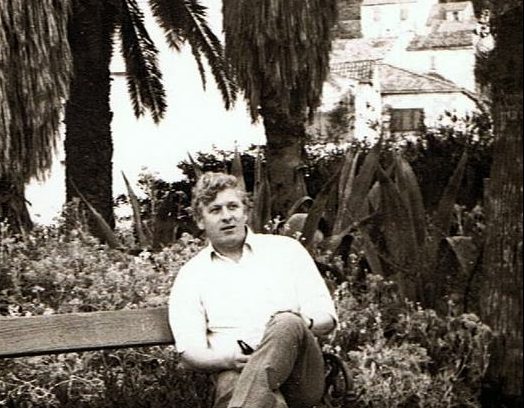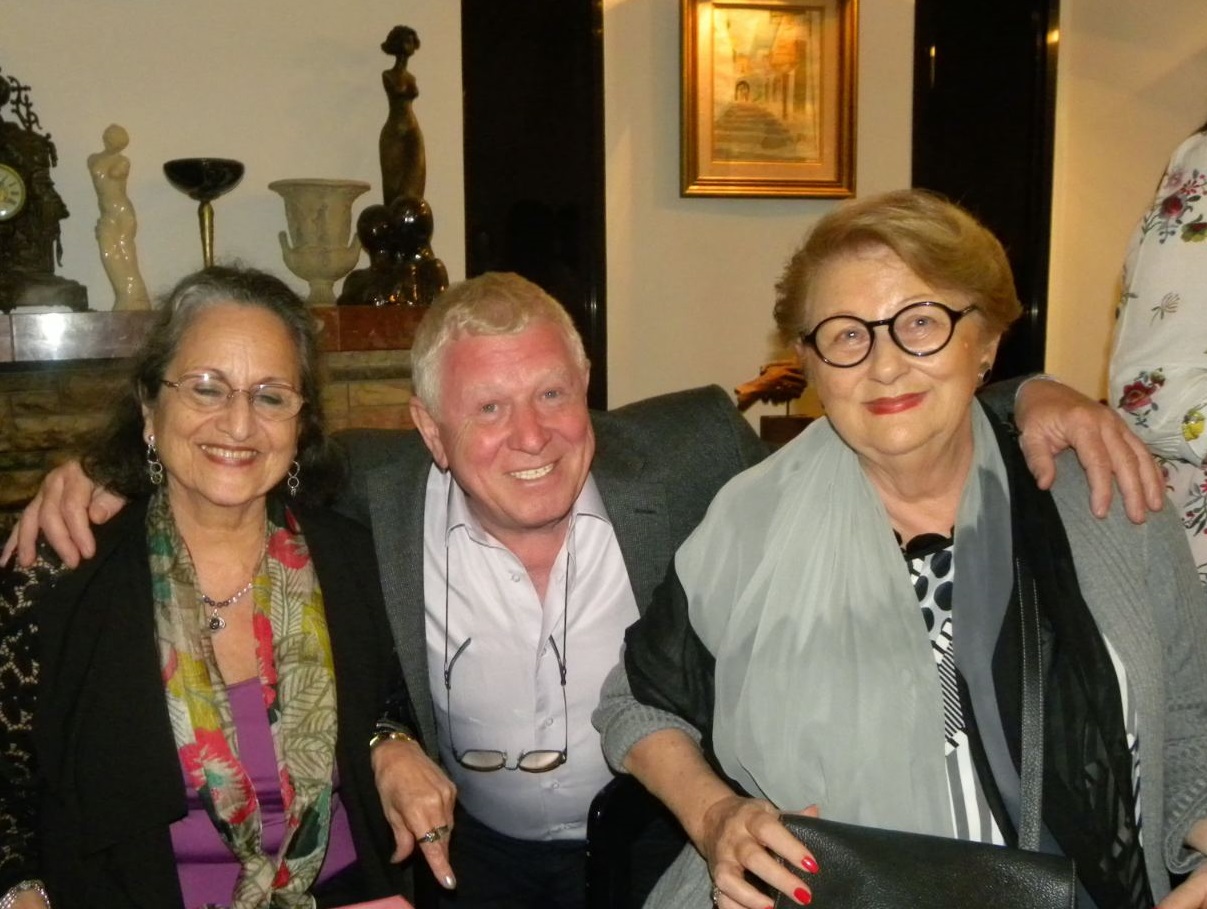Svetozar Jovašević was born in Belgrade just before the beginning of the Second World War in a Jewish family. He worked as an active military person in the JNA until the end of the 1980s, when he retired. He lives and works in Israel.
In his biography, which he shared with us, Svetozar Jovašević writes: “When Belgrade was bombed early in the morning on April 6, 1941, grenades fell in the immediate vicinity of our house. Dorćol suffered the most, because Jews were the most and most densely populated there. After that, after only a few days, German motorized units entered Belgrade without any resistance, and Belgrade was occupied, and so was the whole of Serbia. They were able to buy food only after 11 a.m. when there was nothing left in the shops. they had already been taken to the “Topovske šupe” and “Banjica” camps for work, and soon after that they were all shot in retaliation. Jews were killed in various ways. This lasted until the beginning of December 1941.
Apart from the uncertainty of further events and the fear for a bare life, the biggest problem for women with children was the purchase of food. People, especially children, had a hard time enduring hunger. In early December 1941, the occupying German authorities issued an order that all remaining Jews – women, children, old and sick people must report to a certain place in the city, and that they could take only the most necessary things with them, while the keys to the apartment were were obliged to surrender. My grandmother Rachel did not want to respond to that order, but placed all the children and grandchildren (ten of them) in the house, hoping that the Germans would not come for them. On the morning of December 12, 1941, my mother Vida, although she did not dare, took off the yellow ribbon from her sleeve, took my three-year-old sister by the hand, put me in a pram and went to buy bread and milk, hoping that people would have mercy on small children to allow her to shop.
On the way back home, on the corner of Sezonova Street where we had a house, she was greeted by a neighbor who warned her that all the family members had been taken away. My mother stood as if buried. There was no time, she had to react urgently, so she turned for help to their house friend Ilija Genic, a merchant from Belgrade, who temporarily sheltered her and the children and in the meantime provided my mother with false documents under another name through her friends. But then it was strictly forbidden, under threat of death, for citizens to hide and protect Jews, so my mother decided to travel with her children to Čačak to the relatives of her former husband. They received her there and helped her, but not for long, because someone from their neighborhood suspected that my mother with the children, as a Jew, sought refuge with them. Someone reported my mother to the German authorities in Čačak.
When my mother felt the danger of being discovered, she left my older sister with those people for safekeeping, and she took me with her. However, the chase for her has already begun. Not knowing how and what to do, she decided to leave me on the street and run away. That January night in 1942, in the early morning, I was left on the street in front of a gate at a temperature of minus twenty. I later learned that my mother managed to escape and save herself. I cried from the extreme cold, and the dog in the yard of that house heard my whining and revealed to the family what was happening in front of the gate. The grandmother who lived in that house, when she went out to the gate, saw a bundle on the ground, a little baby crying. The next day, she took me to the municipality to report that someone had left a small baby in front of her gate. The municipality did not know what to do with me, so they temporarily placed me in a home for the elderly.
At that time, various advertisements in the city were performed by a drummer. For the next few days, the drummer walked the streets, pounded on the drum and loudly called on people to take an abandoned small child into custody. After a few days, Desanka Tomić, who lived in Čačak with her husband at the time, responded to the ad. They took me from home, saved me, raised me until I left for the Military School. But my childhood was difficult, burdened with misery, insecurity and fear. After graduating from the Military School, I found out quite by accident that my biological mother lives in Belgrade. After a long wandering and searching around Belgrade, I managed to find my mother after almost a full nineteen years. The meeting was unforgettable and touching: I saw a middle-aged woman approaching me, with light brown hair and a light complexion … “She is beautiful. She is my mother!” – I said quietly. “Oh God, is that possible? There … she’s here, a few steps ahead of me, and how much I longed for her … How many times before I imagined her character, imagined her, my mother with the image of a goddess . ” Mother Vida walked towards me, she stopped for a moment, she looked at me as if she didn’t believe that it was me, Svetozar, her lost son. I turned pale. My ears were pounding, I could clearly hear my heart pounding in my chest. I felt dizzy in my head. As in a dream, as if from some distance I heard her voice … “Son! … My son!” He hugs me and cries. And everyone who watched it cried.
Journalists of the “Vecernje Novosti” newspaper came to record this unusual event. The next day, a picture and an interview of my mother and me appeared in the newspaper.
I met my father in that period, but that was also the end of our further relationship. By finding my parents, my joy was short-lived, my parents were separated, they had newly formed families and they have not been in contact since the end of the war. My mother took two children from her home for adoption and dedicated her love to those children for the rest of her life. On the other hand, after retiring, I went to live in Israel. When NATO carried out the aggression against the FRY on March 24, 1999, I was in Israel, and I lived through those days with great sadness. Through acquaintances living in Israel, with the permission of the local police, I organized peaceful protests in front of the American, French and British embassies in Tel Aviv. I received a letter of thanks from the FRY Embassy in Tel Aviv for my patriotic engagement and financial assistance to Serbia. I am the author of the novel The Great Mother: If the World Were Perfect, Consolation in Apparent Happiness.


